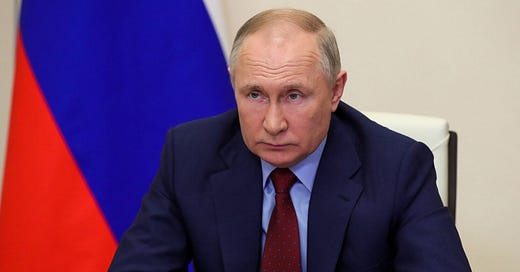The 3 Enemies Vladimir Putin Is Fighting With His War in Ukraine.
Russian opponents, Ukraine, and the West.
The West has been mistaken about Putin's Russia for years. We wanted to see a country that was modernizing and putting itself “in order”, refusing to open our eyes to the neo-totalitarian and neo-imperial “political animal” that was resurfacing from the rubble of communism. We spoke lightly of “strategic partnership” while Putin began the internal and e…
Keep reading with a 7-day free trial
Subscribe to Sylvain Saurel’s Newsletter to keep reading this post and get 7 days of free access to the full post archives.




